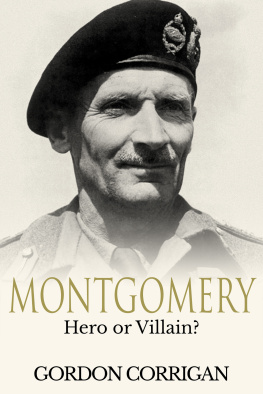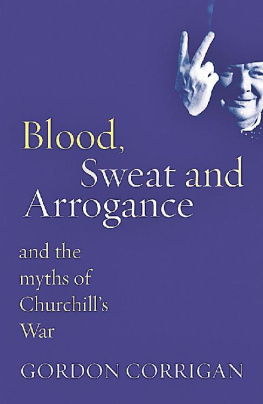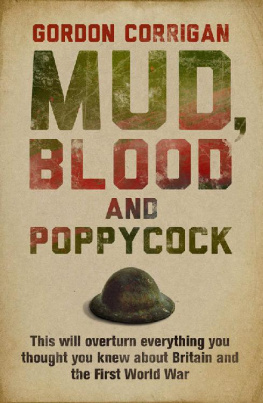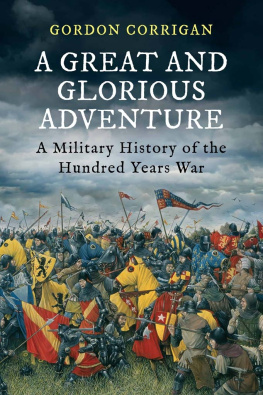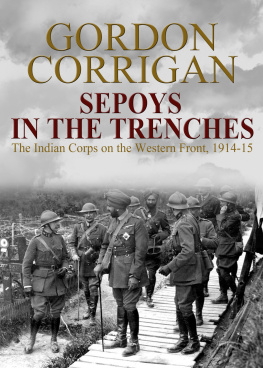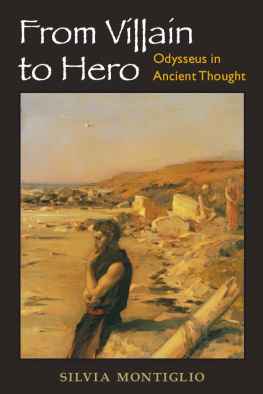MONTGOMERY:
HERO OR VILLAIN?
Gordon Corrigan
Gordon Corrigan 2017
Gordon Corrigan has asserted his rights under the Copyright, Design and Patents Act, 1988, to be identified as the author of this work.
First published by Endeavour Press Ltd in 2017.
Table of Contents
INTRODUCTION
To many Field Marshal Viscount Montgomery was the finest general of the Second World War. Taking over a defeated army of low morale he led it to the great victory of Alamein and masterminded the defeat of the Axis forces in North Africa before turning his attention to the invasion of Sicily and the Italian mainland, then being called home to plan the Normandy campaign of 1944, leading to the eventual defeat of the Germans in the West and the end of the war. To others he was a boastful, disloyal, small minded nit-picker who sniped at better men and did his best to destroy the career of any who might eclipse him, while insisting that everything that happened was exactly as he had planned it, when it transparently was not. Unable to work in a coalition, he did enormous damage to Anglo-American relations. To the public today, and to many who served under him in the past, Monty is still a revered hero, but to many regular soldiers, as opposed to wartime-only conscripts, and to some historians, he was a manufactured messiah, who when discovered to have feet of clay could not be removed from his pedestal.
At the outbreak of the Second World War Britain was not in a happy position militarily. In 1914 she had been able to field an army which although pitifully small compared to the main ally, France, and the main enemy, Germany, was well led, well trained and well equipped. There were severe financial constraints between the wars, however, with Prime Minister Lloyd George averring that the country could afford to take chances with defence but not with welfare, and the rolling assumption of the ten-year rule which said that there would be no major war for ten years and that the Services need not therefore prepare for one. This meant that the Royal Navy was equipped with a very large number of ships, but with many of them obsolescent, while the army, having got rid of the horse on the battlefield, lacked the funds to produce anything other than a token number of tanks and self-propelled guns to replace them, all while acting as a colonial gendarmerie around the empire but with little time or assets to consider intensive warfare against a first-class enemy.
When war did break out military strategy was not helped by the ascent of Winston Churchill to the premiership. While his wonderful oratory did sustain morale at home and in the occupied countries abroad, and while he fully understood the need to court the United States of America, his belief that he was a strategist on land and sea, while his real military understanding stopped somewhere around the middle of the Boer War, led him to interfere in all sorts of military planning and operational deployments that he knew little about, often with disastrous results, while sacking anyone who did not tell him what he wanted to hear. The result was that many of the really good generals were sidelined or sacked, leaving precious few to continue the war.
Montgomerys reputation as a great leader and commander stems from his command of the Eighth Army in North Africa, but he was not the first choice for that post and got it, propelled by his patron, Brooke, the professional head of the army, when the nominated commander, Gott, was killed in an air crash. The move to North Africa allowed Montgomery to avoid the blame for the disastrous Dieppe Raid, which he had sanctioned, and while the Second Battle of Alamein was based not on Montgomerys plan but on that of his predecessor, it was a victory of sorts, albeit deeply flawed by Montgomerys failure to understand the limitations of tanks against German anti-tank guns. However, the British had not had a victory for a very long time. That his opponent, Rommel, commanded an army that was understrength, short on equipment and written off by Berlin but which still withdrew in good order and which outwitted Montgomerys ponderous attempts to cut it off, was conveniently forgotten in the euphoria of what Churchill called the end of the beginning.
Now, seventy-two years after the end of the war and forty-one years after Montgomerys death, perhaps the time has come to re-evaluate this man who attracts so many diametrically opposite opinions. Was he the hand of God, come to put things right as some held at the time and others still hold today, or was he the intellectually stunted and self-aggrandising martinet that his critics believed then and still do?
THE EARLY YEARS
Bernard Law Montgomery was born in London on 17 November 1887, the year in which Queen Victoria celebrated her Golden Jubilee, Britain annexed Zululand to block the Boer Transvaal republics access to the sea, Polish linguist Zamenhof invented Esperanto, WD & HO Wills, the tobacco company, introduced cigarette cards, Thomas Edison invented the phonograph and Conan Doyle published A Study in Scarlet , the first of his Sherlock Holmes novels.
Bernard was the fourth child and the third son of Henry Hutchinson Montgomery, the vicar of St Marks, Kennington, soon to be appointed Bishop of Tasmania, whence the family moved when Bernard was two years old. The Montgomerys were Anglo-Irish, and father Montgomery was convinced that they were direct descendants of a Roger de Montgomery who was one of William the Conquerors more able lieutenants. There is no evidence to support this, although they may well have been related to some distant part of an extended family, and while they had land in Donegal, they were of the Protestant faith and so unlikely to have been descended from the Norman Irish who had been absorbed into the Gaelic aristocracy and retained their Catholic religion. The likelihood is that the first Montgomerys came over to Ireland either in James Is Ulster Plantation in 1603 rather than, as is sometimes suggested, in Cromwells 1649 campaign, when officers were granted land taken from the conquered.
The family had a long tradition of providing sons of the cloth, among them George Montgomery, 15701621, bishop of Meath and Clogher and numerous practitioners of the rites of the Church of Ireland thereafter. There were Montgomery tradesmen and administrators too, and Bernards grandfather, Sir Robert Montgomery, the son of the rector of Moville, was a distinguished Indian civil servant, who having been instrumental in disarming the Bengal regiments in Lahore on the outbreak of the mutiny of 1857, became Lieutenant Governor of the Punjab, the year Bernards father was born in there. Henry Montgomery was a younger son, so the Irish lands were not destined to come to him, but he became a distinguished churchman nevertheless although the modest stipend, even of a bishop, meant that there was little largesse to support a family which eventually consisted of three daughters and six sons. Bernards mother, Maud, was the daughter of the rector of Westminster, to whom Henry Montgomery had been curate. Maud was fourteen years of age when Henry, who was thirty-two, proposed. They became engaged and they married when she was sixteen, the minimum legal age for marriage, and he thirty-four, which today might be called grooming and lead to the police taking an interest in the matter.
Maud gave birth to five of her children by the time she was twenty-five, and in Tasmania with Bishop Henry away from home for long periods, it was Maud who controlled the household. Accustomed as a child to the great and the good of the literary world visiting her father, a prolific author, she found little mental stimulation as the wife of the Tasmanian bishop, and, possibly as a reaction to a loveless marriage, she became increasingly authoritarian, enforcing strict discipline with beatings and surrounding life in the home with myriad rules rigidly enforced. Bernard came increasingly to resent this, and when attempts to gain his mothers affection were met with rebuffs, he came to dislike, even to hate her, while revering his absent father whom he later described as a saint. As an adult Bernard would have little to do with his mother, allowed her no place in the adulation he later received, and when she died in 1949, when he was a field marshal laden with honours, he did not attend her funeral. Bernards upbringing lends weight to the idea of his development as an emotional martinet, uncomfortable in the presence of women and socially gauche.

